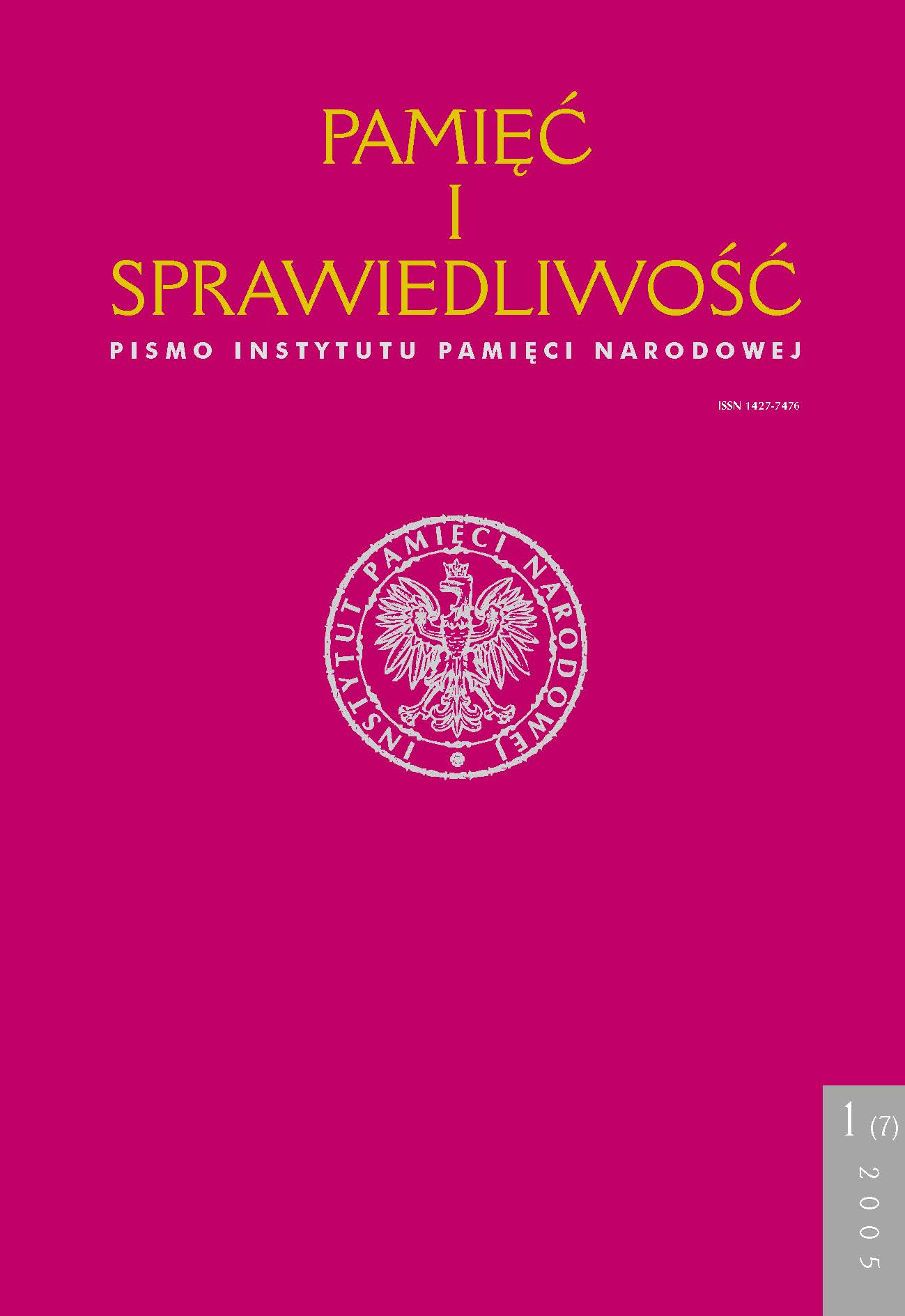Rola duszpasterstwa akademickiego o. Ludwika Wiśniewskiego w działalności opozycji przedsolidarnościowej w Lublinie
Pamięć i Sprawiedliwość, Vol. 7 No 1 (2005), pages: 155-179
Publication date: 2005-06-30
Résumé
The Father Ludwik Wiśniewski, whilst running the Dominican academic chaplaincy in Lublin in the years 1972-1981, passed on to young people the idea of religious involvement conceived as service for the benefit of society, especially for those, whose rights and dignity had been abused. He assembled round himself a wide group of representatives of various opposition groups, mainly the milieu associated with the independent Catholic youth periodical “Spotkania” (among others Zdzisław Bradel, Janusz Krupski, Wojciech Samoliński, Anna Żórawska) and the Lublin Defense of Human and Citizen Rights Movement (among others Adam Cichocki and Piotr Tomczak). Thanks to that many initiatives taken by the Lublin opposition were extended beyond closed
interest groups. The meetings in the chaplaincy also sparked off contacts between opposition activists from Lublin and Gdańsk, where Father Ludwik worked till 1971.
Father Wiśniewski himself was not involved in political activities, but he approved of and morally supported such activities among students involved with the chaplaincy, e.g. opposition protests against the undemocratic elections of 1978 and 1980. He himself was involved in matters that were essential for Catholics and important for society; among others he was the participant in the Defense of Human and Citizen Rights Movement. In the last days of August 1980 he was the spokesman for a group of several people involved with the chaplaincy, which took up a hunger strike in Lublin in solidarity with the striking workers on the Coast. It was due to the critics of his public commitments by his monastic superiors that he decided to leave Lublin.
The Lublin Security Services assiduously followed Father Wiśniewski’s chaplaincy’s activities and at least since 1974 considered it to be aimed against the socialist system of the People’s Republic of Poland (PRL). In consequence, administrative, political and operational activities were taken up so as to hinder the running of the centre in the short term and in the long term to remove Father Wiśniewski from Lublin.
The situation in Poland in August 1980 caused Father Wiśniewski to suspend his idea of creating a permanent independent Catholic youth organisation. But the people involved in his chaplaincy in 1977 started publishing their own periodical “Spotkania”. In 1980 they co-founded the structures of the Independent Self-governing Trade Union “Solidarity” in the country and the Independent Student Union in the Lublin universities and upon the introduction of martial law in Poland operated in the underground structures.
Articles les plus lus par le même auteur ou la même autrice
- Małgorzata Choma-Jusińska, Współpraca środowiska „Spotkań” z emigracją na Zachodzie. Przyczynek do badań , Pamięć i Sprawiedliwość: Vol. 15 No 1 (2010)
- Adam Burakowski, Antoni Dudek, Paweł Ukielski, Małgorzata Choma-Jusińska, [Dyskusja] Rok 1989 w państwach Europy Środkowej. Dyskusja z udziałem Adama Burakowskiego , Pamięć i Sprawiedliwość: Vol. 18 No 2 (2011)
- Małgorzata Choma-Jusińska, Sprawozdanie pokontrolne z pracy Wydziału IV Wojewódzkiego Urzędu Spraw Wewnętrznych w Lublinie w 1988 roku , Pamięć i Sprawiedliwość: Vol. 7 No 1 (2005)
 Język Polski
Język Polski
 English
English
 Deutsch
Deutsch
 Français (France)
Français (France)
 Italiano
Italiano
 Русский
Русский


 PDF (Język Polski)
PDF (Język Polski)
